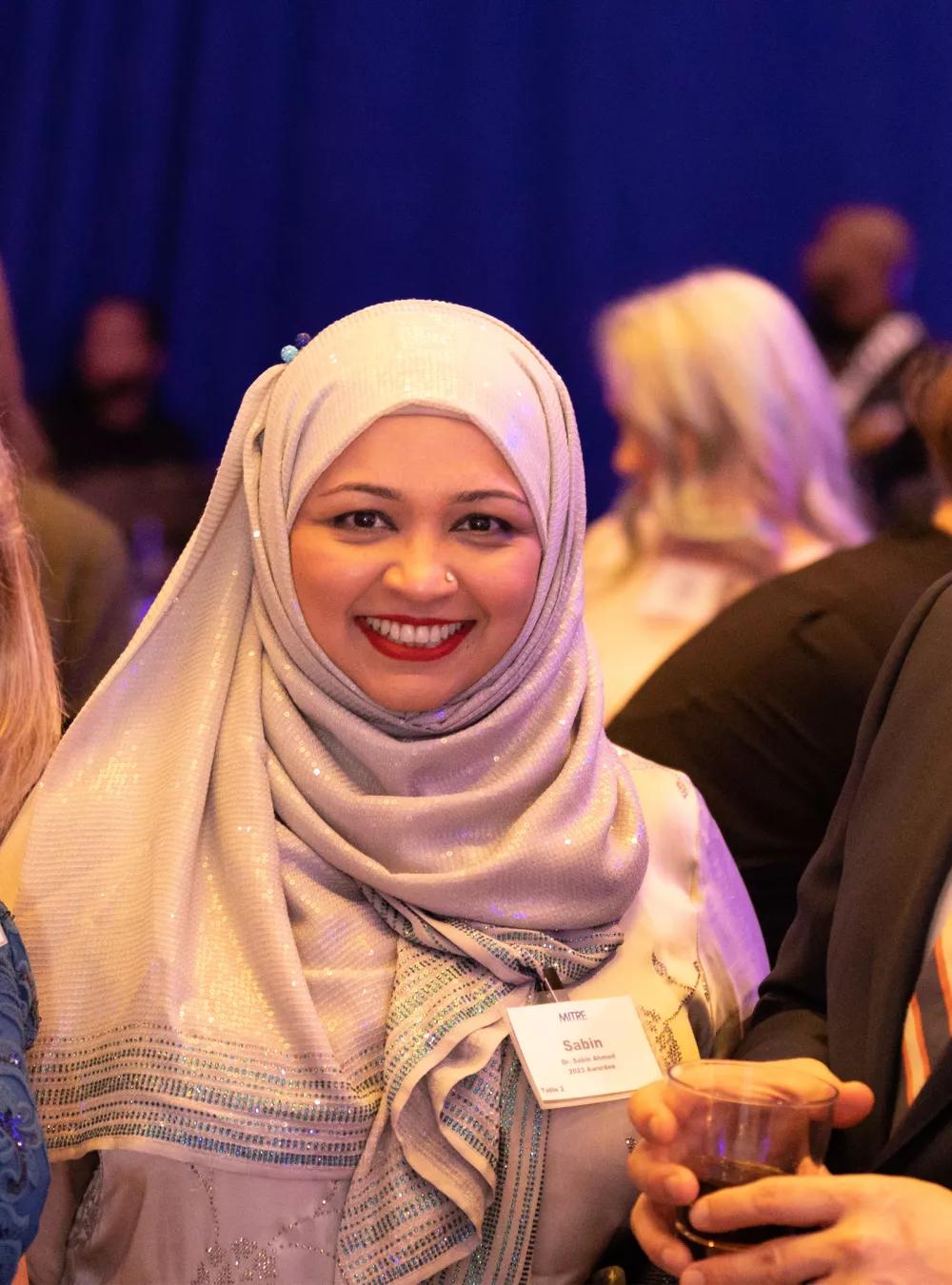Sabin Ahmed

Economist Tackles Real-World Challenges in an Array of Domains
Sabin Ahmed

“Nobody expects you to stay in your lane.”
That’s what Sabin Ahmed, who holds a Ph.D. in economics, says is her favorite thing about working at MITRE.
Although she works in a division focused on transportation safety management and oversight, Ahmed applies her expertise in economics to a variety of the federally funded research and development centers we operate.
“I’ve had one arm in aviation and transportation, one arm in the Treasury, one leg in healthcare, and another leg in managing people,” she says. “That’s the great thing about MITRE—you get to play a role in all the domains you can handle.
“Our government sponsors are always coming to us with new kinds of challenges, so every few months you can learn about something different.”
For IRS, Cash Is Not King
Take one of her early MITRE projects: It was 2018. Although marijuana had been legalized in 33 states and the District of Columbia, there were still barriers to cannabis businesses opening bank accounts. So, many of these companies paid their federal taxes to the IRS in cash—sacks of it.
That wasn’t something the IRS had the bandwidth or the security to handle at the time. MITRE was called in to help, and Ahmed was part of the effort.
“My job was to use econometrics to predict what cannabis legalization policy was going to be across the 50 states to help the IRS predict the amount of cash it would receive, and where,” Ahmed says.
Optimal Air Ambulance Base Location Could Improve Access to Care
Later, through MITRE’s internally funded research program, Ahmed led an effort to determine how air ambulance bases could be better located to support people with the greatest need.
Every few months you can learn about something different.
“For instance, a person who lives an hour or more from a healthcare facility or from ground transportation is generally more likely to need an air ambulance than someone in an urban center,” she explains. “We explored how air ambulance bases could be better allocated to cover more people, reduce costs, and increase efficiency.”
That reallocation, she acknowledges, may be harder than it sounds. “Most air ambulance bases are privately operated, so although states might be able to incentivize providers to relocate their bases, they can’t order them to do it,” she says. “We’re hoping our research will be a tool for informing policy incentives based on the communities that most need air ambulance support.”
Preparing for Aviation’s Future and Quantifying FAA Impact
Today, Ahmed is supporting the Federal Aviation Administration (FAA) with two important efforts. One is to evolve the workforce of the FAA’s Aviation Safety organization to support the National Airspace System of the future—a system that will need to accommodate a variety of new types of vehicles, from drones to supersonic aircraft to commercial space vehicles.
“For instance, what kind of oversight will the FAA be expected to provide for these new operations? And what skill sets will be needed to perform those functions?”
Ahmed is also working to help the agency understand its global influence on aviation safety. “We have the safest airspace system in the world, and the FAA works with international partners to support global safety improvements. I’m working with them to try to quantify that global impact.”
Diverse Inputs Provide Stronger Solutions
Throughout her work at MITRE, exposure to a diversity of perspectives is something Ahmed greatly values.
“I used to only work among other economists. Here, I’m also working with systems engineers, AI experts, and statisticians, and it’s been amazing. Through the different lenses they apply, you start seeing aspects of the problem you hadn’t considered. That’s what helps you develop the strongest solution.”
Within MITRE, colleagues seek out Ahmed for her expertise and spirit of collaboration. Her contributions have earned her recognition externally as well. On February 10, she will receive a Modern-Day Technology Leader award at Career Communication Group’s 2023 BEYA STEM Conference. These awards honor individuals from minority groups who are demonstrating outstanding performance in science, technology, engineering, and mathematics.
“It’s always been my passion to apply economics to real-world problems,” Ahmed says. “I’m grateful to MITRE for the chance to apply my skill set across so many sponsors and fields. It’s exciting work.”
Join our community of innovators, learners, knowledge-sharers, and risk takers. View our Job Openings.